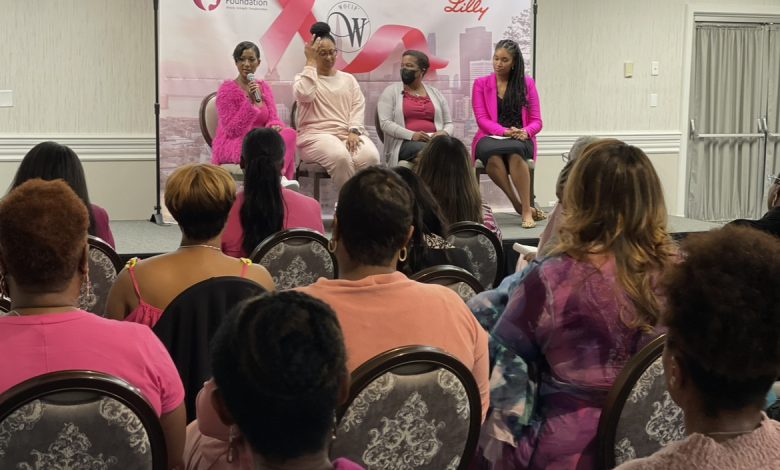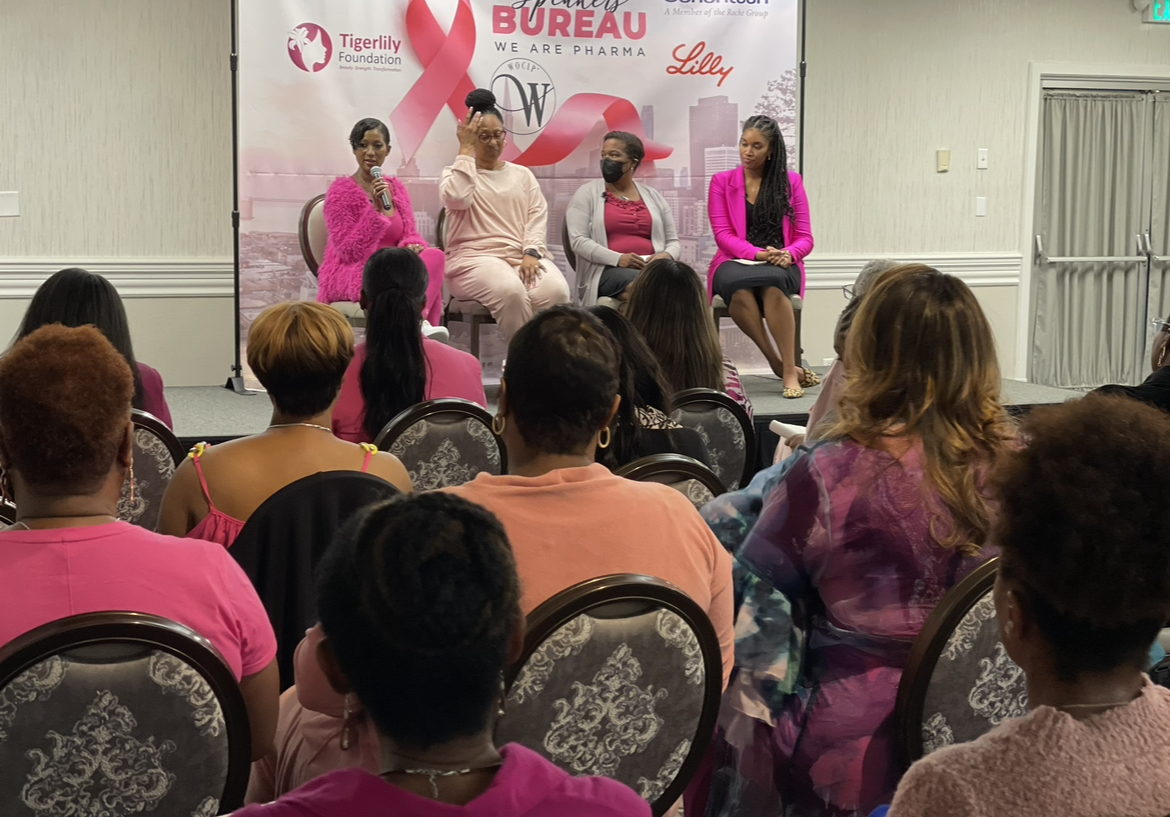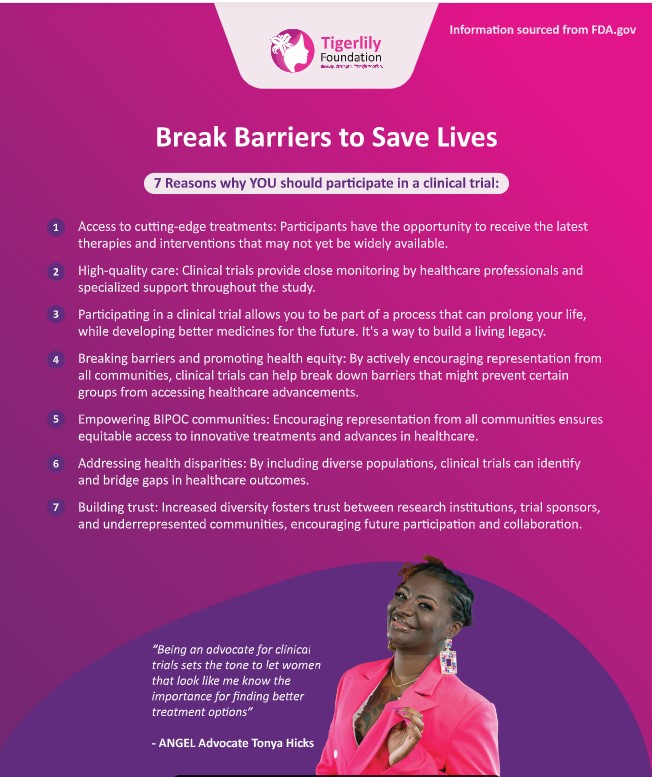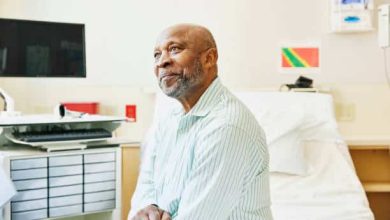Bridging the Gap in Clinical Trial Representation


In the realm of medical research, a stark reality persists—Black people make up less than five percent of clinical trial participants, underscoring a troubling gap in equitable representation. What’s even more alarming is that this underrepresentation is intricately linked to disproportionately high death rates across various diseases within the Black community. Consequently, these challenges not only hinder the diversity of trial participants but also impact the quality of decision-making around treatment protocols. As a result, Black individuals facing serious diagnoses often find themselves navigating a landscape with fewer options and less contextualized care.
As a method of addressing these challenges, Tigerlily Foundation, in partnership with global pharma company GSK, just launched the My Living Legacy Campaign, a national initiative to educate and empower Black communities on the benefits of enrolling in clinical trials for chronic diseases and cancers.
“One of the priorities for GSK is really to make sure that our clinical trials are representative of the patients that actually get the disease… and make sure that we are decreasing barriers so that all patients have equal access to the clinical trials,” says Nisha Patel Engagement Director, Global Demographics and Diversity at GSK.

It’s an issue Maimah Karmo, Tigerlily Foundation CEO, also feels passionate about.
“I am a 17-year breast cancer survivor… and one of the things that was really shocking to me was that nobody was talking to a young woman about the importance of being educated about breast cancer and knowing what to do if there was a sign or symptom,” Karmo shares. “My goal was to also figure out how do I reframe how people think about clinical trials… to create a living legacy of equity in targeted treatments through a new way of engaging people, listening to them, hearing them learning from them and co-creating with them.”
Encouraging Participation in Clinical Trials
“We want to be inclusive and make sure that people have access to our trials not only to ensure health equity, but also to make sure we can generate the safety and efficacy data reflective of the population who get the disease,” Patel adds. “When we educate around clinical trials, that empowers patients to take their own health into their own hands.”
“Now it’s becoming this beautiful thing where we see Black women talking about trials in a way that can transform the legacy of the past into one that’s a beautiful future for Black and brown women,” Karmo adds.
True to Karmo’s claim, breast cancer survivor Keisha Stephney, who experienced a delayed diagnosis during the COVID-19 pandemic, enrolled in clinical trials and was just accepted into a congressionally directed medical research program, now sees the importance of clinical trials despite an initial fear. She hopes that by addressing the stigma surrounding clinical trials people of color will be encouraged to consider these opportunities.

A Delayed Diagnosis
Stephney’s journey began in April 2021, a time when the world was grappling with the effects of a global pandemic. Scheduled for a routine mammogram in July 2020, she faced obstacles as healthcare facilities temporarily halted such check-ups. Battling through closures and restrictions, she finally secured an appointment in April 2021.
Amidst getting the COVID-19 vaccine, Stephney was urged to follow a six-week waiting period post-vaccination, however, her gut told her to follow through with the mammogram. The mammogram revealed an unsettling discovery.
Navigating the Diagnosis
“The navigator told me that based on what they saw in the ultrasound they were 95 percent sure that it was




